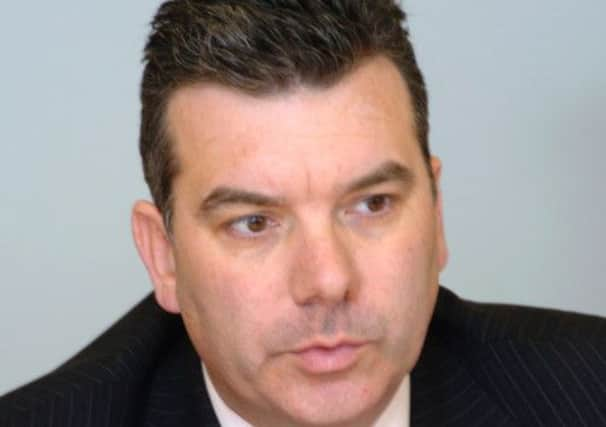Sector’s fears of a winter energy blackout


Andy Tüscher, the regional director for the North at the manufacturers organisation the EEF, said Britain must have long-term policies to ensure there was enough energy for its businesses.
His concerns were echoed by Alison Kinna, the managing director at Outokumpu stainless distribution in Sheffield, who said she had been warned that winter gas capacity “will be extremely tight”.
Advertisement
Hide AdAdvertisement
Hide AdThe comments were made after a lunch in Sheffield organised by the new Master Cutler, Tony Pedder. Concerns were raised about the dangers of carbon leakage, which occurs when carbon dioxide emissions rise in one country as a result of stringent “green” policies in one of its neighbours.
There are fears some companies will shift their production to places where the environmental rules aren’t as strict.
Mr Tuscher said: “We need an energy policy that isn’t just here for three, four or five years. It would be far more beneficial to have a clear coherent strategy on energy that would help industry and manufacturing, and help with investment.”
He said some members were concerned about a complete loss of supply. He told the Yorkshire Post: “In the previous three years, members have had letters saying that potentially their supply may be turned off. Thankfully, it hasn’t happened, but yes, they are clearly worried that this may happen.”
Advertisement
Hide AdAdvertisement
Hide AdMs Kinna said successive Governments had “kicked the can down the road” when it came to energy policy.
She said yesterday: “We need stable and competitive pricing in order to continue to locate high energy consuming production in the UK. Our competitors are not just in Europe, they are located in China and the US. How does the Government suggest we manage short-term price spikes caused by lack of gas storage?
“We have been warned that this winter capacity will be extremely tight. The burden of this will all fall on manufacturing. We run continuous operations – any outages, particularly at short notice, cause massive disruption and we cannot afford to run during price spike periods.”
Peter Holmes, the chairman of South Yorkshire Institute of Directors, quoted research which stated that the main reason for the possible energy crunch was the fact that Britain is closing a number of aging coal-fired plants, as well as some oil and nuclear ones, to meet European Union environmental laws.
Advertisement
Hide AdAdvertisement
Hide AdMr Holmes said: “Power generation is a delicate topic because there are many against wind farms and nuclear energy but while the scaremongers get on their soap boxes, demand is actually falling as a result of improved efficiencies at the point of consumption.
“There are also some large users that have contracts that allow their power to be interrupted in return for lower overall pricing. I don’t believe that we’ll see power cuts but we should have had a solid strategy and investment plan in existence many years ago.”
A Department for Energy and Climate Change spokesman said: “The Government has a clear plan to make sure we keep the lights on and make energy bills more affordable for consumers and businesses. We’re reforming the electricity market to stimulate investment into low-carbon home-grown forms of energy generation and to open up the market to more competition.
“We recognise concerns around competitiveness and carbon leakage and have put in place a package of measures to compensate energy-intensive industries. We believe the risk is limited to a small number of sectors and that mechanisms to address these risks should be based on sound analysis of the impacts.”
Setback as industrial output falters
Advertisement
Hide AdAdvertisement
Hide AdBritish industrial output suffered an unexpected fall in August as factories cut production, casting some doubt on the positive message about the economy from private sector surveys.
British industrial output fell by 1.1 per cent on the month in August, the biggest drop since September 2012. This was far weaker than the rise of 0.4 per cent forecast by economists, and contrasts with upbeat surveys of firms in the manufacturing sector.
Ross Walker, UK economist at RBS, described yesterday’s release as “shockingly bad” and said it was likely recent reports had overstated the pace of the recovery.